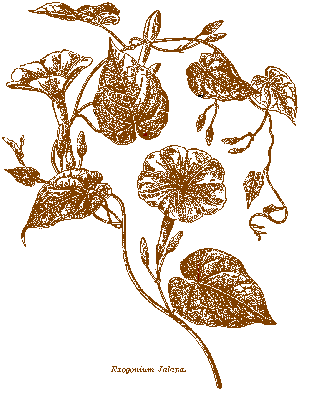
![]()
The Society of Jacobins - The most famous of the political clubs of the French Revolution, which, after its moderates had been expelled, derived its power from the Paris mob. Its name, first applied in derision, is due to its meeting in Paris at the monastery of the Jacobins (Dominicans). After the club's final suppression, in 1799, the term Jacobin was popularly applied to all promulgators of extreme revolutionary opinions. In England, the term was directed against the Radicals (by Canning et al.), and in the correspondence of Metternich and other leaders of the repressive policy following Napoleon Bonaparte, Jacobin is the term commonly applied to anyone with Liberal tendencies, including the emperor Alexander I of Russia.
Jacobites - A term applied after the revolution of 1688 to the
followers of King James II of England, his descendants, and later,
the exiled House of Stuart. Although it was no longer a serious
political force after 1715, it held sentimental sway in some quarters
until at least the beginning of World War I.
![]()
![]() Jacobites and Victorians
Jacobites and Victorians
Joseph Marie Jacquard, (1752-1834) - French inventor who constructed
an improved weaving loom, incorporating certain improvements of
Jacques de Vaucanson (1709-1782). In 1806, the loom was declared
public property and Jacquard was awarded a pension and a royalty
on each machine. Adoption of his loom was fiercely opposed by
the silk-weavers, who feared that it would deprive them of a livelihood,
but it was widely used in France by 1812.
![]()
![]() From the Jacquard loom to the Hollerith card
From the Jacquard loom to the Hollerith card
The Jacquerie - The French peasants' revolt of 1358 in which chateaux were burned as well as hayricks, peasants terrorized the countryside, and nobles eventually massacred peasants in great numbers. It's not in TDE, but we're on a class-war roll here with the letter J.
 Jalap - A cathartic drug grown from several plants native to Mexico,
but also cultivated for many years in India. Formerly used as
a hydragogue purgative for removing water from the body in conditions
such as edema. Now replaced by less dangerous alternatives.
Jalap - A cathartic drug grown from several plants native to Mexico,
but also cultivated for many years in India. Formerly used as
a hydragogue purgative for removing water from the body in conditions
such as edema. Now replaced by less dangerous alternatives.
Japan & the West - In the first half of the 19th century, Americans, English, and Russians all sent repeated expeditions to Japan to urge them to open their ports to foreign ships. The English had replaced the Portuguese as chief traders in Asian waters, the Americans sought water and stores for their whaling ships and trade vessels en route to China, and the Russians were in the process of developing Eastern Siberia. The Japanese however, having seen what happened to China in the Opium Wars, were rightfully worried about contact with the West. The Americans succeded in "opening Japan to the West" by the novel diplomatic tactic of sending an impressive naval force and ordering the Japanese to open trading relations. By 1856, Japan had signed treaties with England, Russia and Holland.
Japanese names are listed here with the family name first. Before Japanese citizens were allowed by their government to travel abroad legally, those who traveled sometimes used false names. Some who stayed abroad retained the names they traveled under.
![]()
The Difference Dictionary was first published
in slightly different form in Science Fiction Eye, Issue #8.
Text copyright 1990, 1996, 2000, 2003,
by Eileen K. Gunn.


